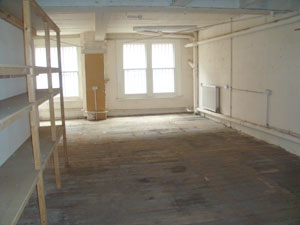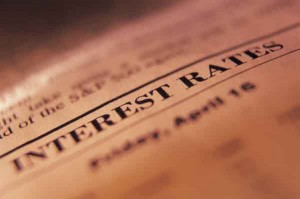The 4 Ways to Buy & Sell for Profit in a Tough Economy
Building a property portfolio is not complicated. It boils down to finding properties that are quickly lettable to good tenants that pull in a high level of rent [yield] as a percentage of the purchase price of the property.
The biggest risks property are bad tenants, high maintenance, voids and interest rate rises.
Here’s how you protect against these risks for confidence, income and security
Get this right and you’ll end up with a solid, recession proof income.
Get this wrong and you could be joining the other overseas, off plan, new build junkies one month away from bankruptcy (or worse)
But here’s the good news…Because so many do get it wrong, there’s more contrarian opportunity and income for you when you do the opposite of the masses and protect yourself against these:

1. Non paying tenants – They can be the bain of a property manager’s life if left unchecked. Tenants need advanced VETing, frequent checking and management, to make sure that the rent is up to date and relevant paperwork has been completed.
You will usually end up teaching the tenant weather they can pay you late or not by how, and the speed at which you react to late payments.
You should be contacting them the next day when in arrears if possible, showing them that you won’t tolerate the situation, and serving section 8 or 21 paperwork at the earliest opportunity, whilst retaining clear, professional dialogue with them.
Its especially important with LHA tenants to understand why rent is late, such as council suspending benefit payments or the tenant hasn’t passed it over, so that you can rectify the situation and perhaps help with communications with the council.
Their payment behaviour is mostly driven by how you teach them to behave. VET upfront, remain professional and at arm’s length, take action quickly and follow the right course, and you’ll have fewest issues.
We factor in 14 days vacancy per year into our deal analysis, though the reality is we are at about 9.7 days per year on average. Pretty good.
2. Maintenance – a huge area that letting agents and maintenance men can make their money, sometimes at your expense.

You can save huge amounts by staying on top of it, scrutinising bills and not spending money unnecessarily.
We are very particular to ensure that properties are safe and legal, but usually basic with no frills and a neutral look. We always get 3 quotes for jobs over £1000, boilers can cost between £800-£2000 fitted (but make sure you get every last year out of the old boiler before changing) depending on who you use.
I often use the example of a damp contractor who quoted £8500 for a job only to get a second quote in at £3400 and a third who got the job at £360 for a property that I was selling. Differences like this are commonplace. Don’t assume that just because an electrician says a property will be unsafe unless it is rewired (£2500+) that it is, get at least one more round and DON’T tell him what the first one said!
Check everything. Doubt first and question, and get 3 unrelated quotes!

3. Voids – Cancer for property investors. If it means dropping the rent a little to get a tenant in then proceed to lower the rent. 1 month void at £500 will cover almost a year at £50 less a month. It’s much better to get the tenants in and then increase the rent slowly over time.
2-3 months void will eat ALL NET Cashflow, leaving you with nothing.
It’s also a good idea to put several letting agents against each other. They all have different types and numbers of tenants. If a letting agent hasn’t let a property in 3 weeks, we usually open it up to others. Create competition, fear of loss and a healthy respect that you’re switched on.
Another good little tip is to ask the letting agent to insert a clause into the AST (tenancy agreement) that makes the tenant give 60 day’s notice before leaving the property. This gives you time to get new tenants in with no voids.
I have analysed our last 5 years tax returns (Rob gets bored reading a post it note, so someone needs to keep an eye on the detail) and as an average across all of our properties, our running costs are about a third of the gross rent (management, maintenance, voids, safety checks, insurance etc).
Yes… it’s more stringent than the lenders 125%, but I like reality. I then work the long term cost of finance out, which is around 6%. An 8.5%-9% gross yield with a third taken off for cost covers the finance, guess what gross yield we look for!
You guessed it, 8.5% or better.

Bonus biggest risk: Interest rate rises – I also know that the biggest single property investment portfolio killer is interest rate shock (quickly increasing interest rates for which rental income is not sufficient to cover). For me this is a risk too great to take, especially as I don’t sleep well anyway
So the way I see it you have 2 options. You can either take an insurance policy out to cover your mortgage payments if base rate goes beyond a pre determined level. Or you can choose fixed rate mortgages.
For me the former has always seemed expensive in comparison the latter. So we will usually elect to pay 1-2% more in terms of mortgage rate for the security of a fixed payment. We would always go long term too….We believe these should all be viewed as long term investments, so 10 year fixes (depending on availability!) should be fine.
Remember, capital appreciation is a fact, not a ‘strategy’. You need to concentrate on achieving monthly profits in order to keep your business liquid. Your aim should be to buy investments “as if prices will never go up again” then you will be forced to only buy properties which give you great cashflow.
Having extra cashflow and a safety buffer will also cover potential rises in interest rates in the future and for any unexpected costs you may incur in case of an emergency.
And if you’re just starting out, spend some time and money investing in advice and mentoring from experts. Whether it’s us or someone else, because the best risk reducer is knowledge.
